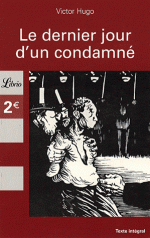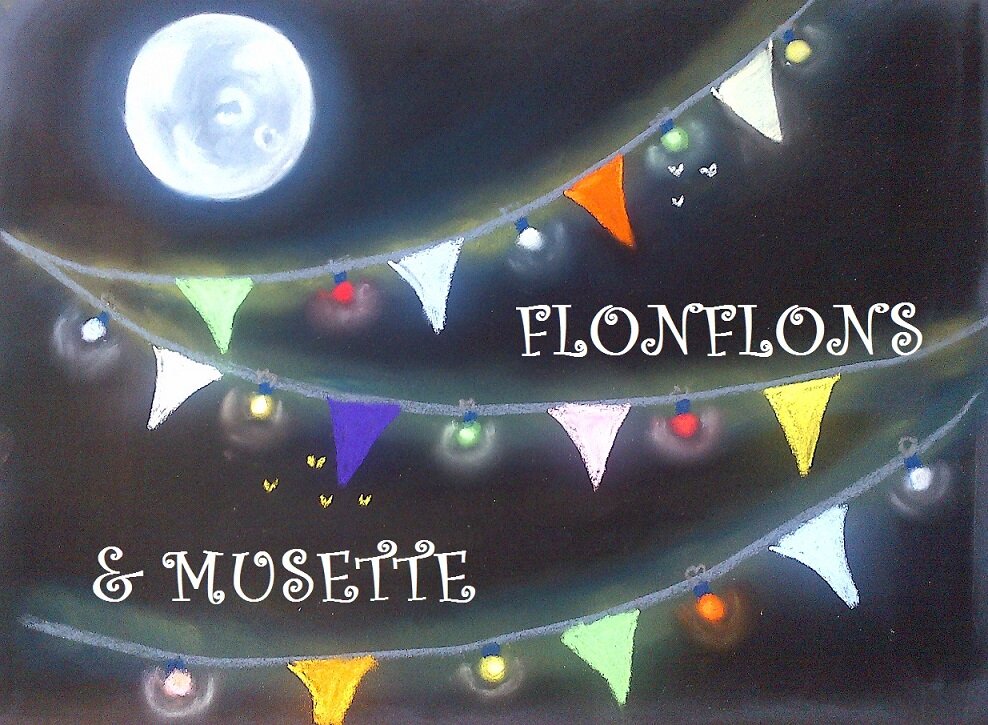Le vieil Hugo
Ah! le printemps est presque là, il pleut comme vache qui pisse, il fait un de ces ciels bas du Nord à se cogner la tête aux nuages (gris), la rentrée est arrivée, les enfants sont repartis, bref: c'était le moment I-DE-AL pour s'attaquer au Dernier jour d'un condamné de Victor Hugo!!!!!Pardi! Mais quelle idée. Pourtant, Dieu sait que j'ai une tendresse toute particulière pour "le vieil Hugo".
 Bah, un tout petit Librio, trouvé à la ressourcerie, avec certes un titre évocateur, mais pas beaucoup de pages. Et puis deux siècles ont passé, le temps efface la souffrance.....
Bah, un tout petit Librio, trouvé à la ressourcerie, avec certes un titre évocateur, mais pas beaucoup de pages. Et puis deux siècles ont passé, le temps efface la souffrance.....
Que je croyais. Quel superbe, tragique brûlot. Quel courage. Sortir un livre pareil dans les années 1820. Bon, inutile de vous faire un résumé, tout le monde devine le sujet: un condamné à mort, un geôle parisienne infâme, un crime jugé mais jamais dévoilé, très peu d'infos sur le dit condamné ( ce qui a longtemps été reproché à Hugo, d'ailleurs), excepté ses sentiments, ses angoisses, ses souvenirs, ses descriptions.
Certes, niveau matériel et langue, tout ça a un tantinet "vieilli". On est presque 200 ans plus tard. Mais rien ne vieillit jamais ni la peur, ni l'angoisse de la mort, ni l'horreur de l'exécution. Superbe "nouvelle", à lire et à relire, à faire passer, à creuser.
Pourtant, une fois le livre refermé, une chose m'a tarabiscotée: la fin de la nouvelle, terrible, décrit la longue, l'interminable "marche" vers l'échafaud, place de Grève, ralentie partout par la foule, amassée, hurlante, composée de femmes, d'hommes et d'enfants, venus par centaines assister au spectacle, à la tête qui va tomber, au sang, à la mort. C'était il y a presque, mais à peine, 200 ans. Quels éléments, quelles forces, depuis, ont fait basculer " les goûts" de cette foule? Pourquoi, nous, Français en 2016, sommes-nous ( dans notre grande majorité) horrifiés à l'idée même d'évoquer une exécution ( alors imaginez donc y assister et s'en délecter!). Qu'est-ce qui nous a ainsi changés?Qu'est-ce qui nous a rendus plus ...."humains"? Comment s'est opérée cette transformation, ici et ailleurs? Quels ont été les éléments déclencheurs, en (finalement) si peu de temps? L'éducation, les Hugo, le travail des abolitionistes? J'ai eu beau chercher, discuter, échanger, j'avoue humblement ne pas avoir trouvé de réponse simple à ma question. Je vais donc continuer à chercher...
Ah! Spring is almost here, it is raining buckets ( like a pishing cow, we do say down here. I love it), we could knock our head on the lowish greyish Northerly-styled sky , school has resumed, children have gone: i decided it was a PER-FECT time to start reading The last day of a condemned man, by OUR very own Victor Hugo. Hey, what a great idea! Although i do have to confess a special tenderness for our old Hugo, well, what an idea......
 The thing is, i took this very thin Librio book at the local "ressourcerie". Indeed, the title was quite self expanatory. But, very few pages, and you know how sometimes Time blurrs, if not erases human suffering.
The thing is, i took this very thin Librio book at the local "ressourcerie". Indeed, the title was quite self expanatory. But, very few pages, and you know how sometimes Time blurrs, if not erases human suffering.
Well, it does not. What a superb, tragic "story". How courageous. I mean, writing such a book in the 1820's, in France. Now, needless to summ up the book, i guess you have an idea of what it is all about: a man, sentenced to death, a filthy, sordid parisian jail, a crime judged, but never explainied or mentioned, very little information about the condemned man ( which Hugo was often reproached with), except his feelings, his angst, his panic, his memories, and his descriptions.
Now, materialy and linguistically speaking, the book has aged. Our "Today" is almost 200 years later. But panic, fear of death, and the sheer horror of execution has not aged at all. Here is a superb story to read and reread and lend and offer and think about.
Though i have to say that, once I had closed the book, something started obsessing me : the end of the "novel-short story" painstakingly describes the long, never-ending "progress" towards the guillotine, erected Place de Grève in Paris. The progression is greatly delayed by the enormous, yelling, eager crowd, women, men, children alike, who have come by the hundred to attend the show, see the head roll down into the basket, blood, death. That was almost, though only, 200 years ago. What changed us in the meantime? What changed the "taste" of this crowd for such a sight? Why do we, French people in 2016, cringe and yell at the mere evocation of execution, ( not to mention attending one and enjoying it!!!). How did we come to be horrified by something which most people used to enjoy two centuries ago? How did our vision of life, death and punishment changed in such a short lapse of time? How did we become more..."human"? Education? Authors like Hugo? Abolitionists? I tried to think hard about it, exchange with people, but i have to admit i could not come out with any simple answer to the question. I am going to keep on searching......




/http%3A%2F%2Fstorage.canalblog.com%2F88%2F62%2F1292065%2F120076858_o.jpg)
/http%3A%2F%2Fstorage.canalblog.com%2F95%2F42%2F1292065%2F116012837_o.jpg)
/http%3A%2F%2Fstorage.canalblog.com%2F36%2F30%2F1292065%2F113239153_o.jpg)
/http%3A%2F%2Fstorage.canalblog.com%2F59%2F51%2F1292065%2F113030668_o.jpg)